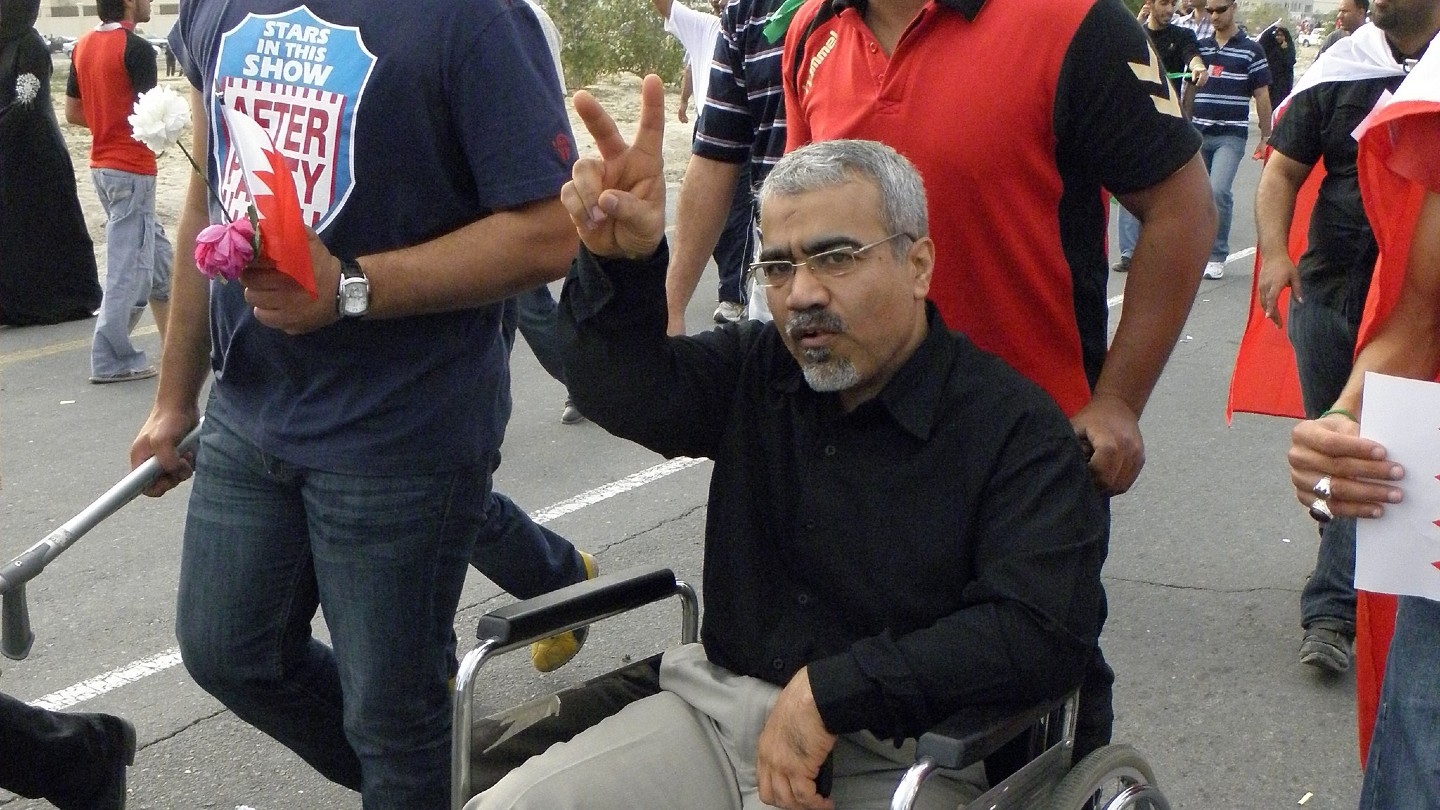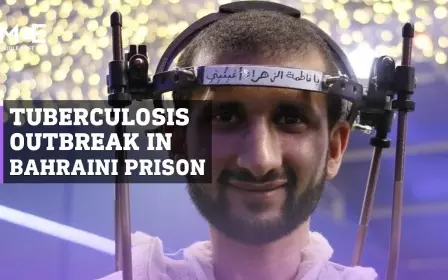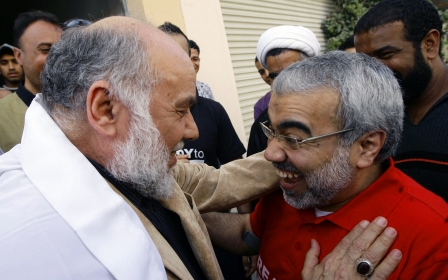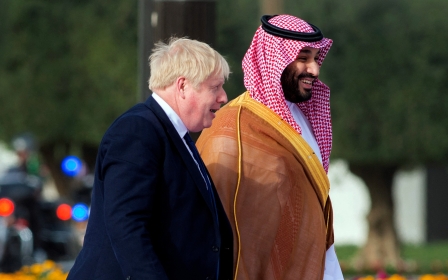UK government has no records of minister raising human rights cases during Bahrain visit

The UK government failed to raise the most pressing Bahraini human rights cases with the kingdom’s authorities during high-level meetings earlier this year despite implying it had done so, a freedom of information request has revealed.
Among the cases of imprisoned human rights defenders that Lord Ahmad, the minister responsible for human rights, neglected to press during a 13-14 February visit to Bahrain was that of Abduljalil Singace, an academic who is serving a life sentence over his participation in the 2011 uprising. An independent commission, established by the king of Bahrain, found that he has been tortured while imprisoned.
'It has been 11 years since the UK condemned his conviction ... but all we see now is deafening silence'
- Abduljalil al-Singace's family
Singace, 60, has been on hunger strike for nearly a year to protest his treatment in prison, including the confiscation by authorities of a book about linguistics that he had been working on for four years and has no political content.
His family says that prison officials are withholding medications he has been prescribed and treatments he needs, and have also recently cut the milk and sugar in his tea, the only thing he has apart from water, salt and a multivitamin.
"For nearly one year, we have been forced to watch him suffer and deteriorate to this fragile condition. Authorities have ignored his demands and offered no resolution of his basic request to have his own intellectual property passed to us," his family told Middle East Eye.
No records held
The UK government promoted Lord Ahmad's Bahrain trip, which included meetings with King Hamad bin Isa al-Khalifa, Foreign Minister Abdullatif bin Rashid Alzayani and heads of human rights oversight bodies, as "his first visit to the state as part of his human rights portfolio".
In the three months prior, Singace's situation was raised by MPs and peers at least 12 different times in parliament and in written questions. In response to almost every written question, ministers said that the UK government continued to monitor and discuss Singace’s case and others with the Bahraini government and oversight bodies, but did not offer specific dates when pressed.
With one exception: Minister for Asia and the Middle East Amanda Milling said in late February that UK officials "regularly discuss human rights issues and individual cases" with Bahraini officials and bodies - and that Lord Ahmad’s visit had been a “further opportunity to do so”.
But now a response to a freedom of information request shared with Middle East Eye has revealed that the Foreign Commonwealth and Development Office (FCDO) has no records that Lord Ahmad raised the cases of Singace or a number of other prisoners whose cases have been highlighted by British parliamentarians.
The FCDO's Information Rights Units said in a 14 June response that it did not have any records that Lord Ahmad raised the specific cases of Hassan Mushaima, Sheikh Ali Salman, Mohammed Ramadhan, Husain Moosa, Naji Fateel, Ali al-Hajee, Duaa Alwadaei or six children who are currently being held in arbitrary detention.
These same individuals - which include opposition leaders, leading protesters in 2011, and human rights defenders - were all named in a 14 February letter that five MPs and peers sent to Lord Ahmad, while he was still in Bahrain, which urged him to raise their cases.
MEE approached the FCDO for comment. In a response received after publication, it said it was incorrect to infer from the FOI response, which said the FCDO had no records of Lord Ahmad raising the cases, that he had not raised individual human rights cases during his visit to Bahrain.
A spokesperson said: “This article is wrong, a number of human rights cases were raised with senior members of the Bahrain Government by Lord Ahmad during his visit in February. Lord Ahmad regards human rights as a key priority and consistently raises the issue on visits overseas."
Family let down
Singace's family said they would have expected the UK government to speak up after its outcry in 2011 when he was sentenced.
At the time, then Middle East Minister Alistair Burt said he was "extremely concerned" by the court proceedings in which "civilians are being tried before tribunals chaired by a military judge, with reports of abuse in detention, lack of access to legal counsel and coerced confessions".
Singace is also an alumnus of Manchester University where he earned his PhD before heading the mechanical engineering department at the University of Bahrain.
"It has been 11 years since the UK condemned his conviction which was tainted with indescribable torture, but all we see now is deafening silence," his family said this week.
'It is becoming more and more clear by the day that the cosy relationship between the UK government and Bahrain authorities is built on trade and arms sales first'
- Lord Paul Scriven
Shadow Middle East Minister Bambos Charalambous told MEE that he was "very concerned" that it appeared that ministers had failed to raise the cases of the political prisoners as well as that of the six children.
"I will be writing to ministers to ask them to raise these cases with the appropriate authorities," he said.
Lord Paul Scriven, a Liberal Democrat peer who has pushed the government to clarify when it has raised Singace's case and why it won't disclose the dates if it has done so, said on Tuesday that Lord Ahmad's conduct "speaks volumes" about the UK government's priorities.
"It is becoming more and more clear by the day that the cosy relationship between the UK government and Bahrain authorities is built on trade and arms sales first and human rights issues have been sidelined and have no priority," he told MEE.
"The fact Lord Ahmad didn't raise those serious cases of human rights abuses speaks volumes about the lack of integrity of the UK government when it is dealing with serious allegations of human rights abuses in Bahrain."
Middle East Eye propose une couverture et une analyse indépendantes et incomparables du Moyen-Orient, de l’Afrique du Nord et d’autres régions du monde. Pour en savoir plus sur la reprise de ce contenu et les frais qui s’appliquent, veuillez remplir ce formulaire [en anglais]. Pour en savoir plus sur MEE, cliquez ici [en anglais].




